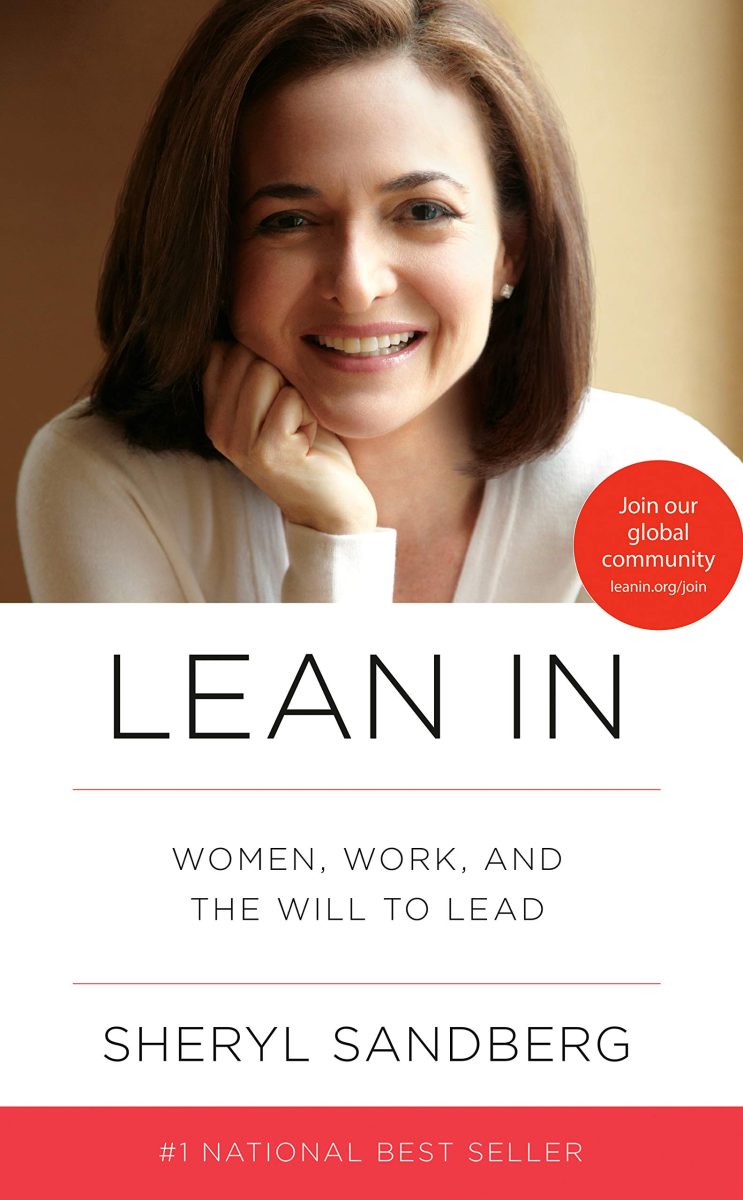As a woman business major, I’m constantly reading about women in the workplace. Because of the studies I’ve read and the anecdotes I’ve heard, I have dual fears: my personal fears that I won’t be good enough, and the external fear that no matter how much I do, it won’t be good enough to beat some of the stereotypes about women. With those worries in mind, I picked up “Lean In” by Sheryl Sandberg this summer. Sandberg is the CFO of Facebook and has a long career in both Washington, D.C., and Silicon Valley. She’s one of the names that always comes up when we talk about women leaders in my business classes and is a role model for many college women.
“Lean In” doesn’t exclusively focus on common feminist policy issues such as the pay gap or sexual harassment. Instead, Sandberg focuses on the internal barriers that women face — their doubts about their abilities, holding themselves back, not speaking up and otherwise “leaning out.” In that way, it’s more of a book about facing internal barriers, instead of fighting against the system itself, as a way of progression.
By their nature, internal barriers are difficult enough to explain and much less present as a widespread condition. Sandberg does her research though, and for every abstract boundary women set for ourselves, she has a study to back it up as a genuine barrier. (The last 35 pages of the book are references.) She discusses a variety of studies about how women attribute their success, about how business people react to a resume with a man’s name versus a woman’s name and how women start preemptively backing out of the workforce in preparation to start a family. The studies add credibility to her writing and, for women, comfort in the fact that it’s not an individual struggle.
Sandberg doesn’t shy away from letting her own insecurities serve as a model for the hurdles women face. One such barrier she discusses is “impostor syndrome,” or the feeling that one is a fraud and doesn’t deserve her or his position. According to Sandberg’s research, women have a tendency to feel this more acutely than men, and attribute their success to external forces. When Facebook filed to become a public company, the “New York Times” published an article about Sandberg. The first few paragraphs of the article describe her as wickedly smart and a role model for women — but the rest says she was “lucky” and had “powerful mentors along the way.” The article even says that she’s had a “golden path to success.” Most people would hit back hard, especially in a personal book, but Sandberg admits, “‘Times’ didn’t say anything that I hadn’t thought myself a thousand times.”
The myth of the “working mom that has it all” is one that Sandberg fully acknowledges as an expectation that she struggles with. She writes,
“Being judged against the current all-consuming standard means mothers who work outside the home feel as if we are failing, even if we are spending the same number of hours with our kids as our mothers did. When I drop my kids off at school and see the mothers who are staying to volunteer, I worry that my children are worse off because I’m not with them full-time.”
While Sandberg acknowledges that there is no evidence for the idea that children benefit more from stay-at-home-moms, being away from her kids still makes her feel like she is failing them in some way. My own mom, who has worked full time as a lawyer since I can remember, has always worried that she let down my sister and I by working. She never did, and I doubt Sandberg lets down her children like she worries she does, but working moms (and all moms, really) constantly question how they measure up.
In her book, Sandberg strikes a balance between being too timid and being a “bra-burning” feminist. She honestly presents her own insecurities and flaws and gives her perspective on the best way to push yourself to succeed. While her advice has been criticized as being too narrow and applying only to certain women, her book is a good start for college-aged women about to enter the workforce.
“Lean In” encourages women to overcome internal barriers to success
September 22, 2019
Photo by Creative Commons
Sheryl Sandberg is the CFO of Facebook and Number One New York Times Bestseller.
0
Donate to The Battalion
$1865
$5000
Contributed
Our Goal
Your donation will support the student journalists of Texas A&M University - College Station. Your contribution will allow us to purchase equipment and cover our annual website hosting costs, in addition to paying freelance staffers for their work, travel costs for coverage and more!










